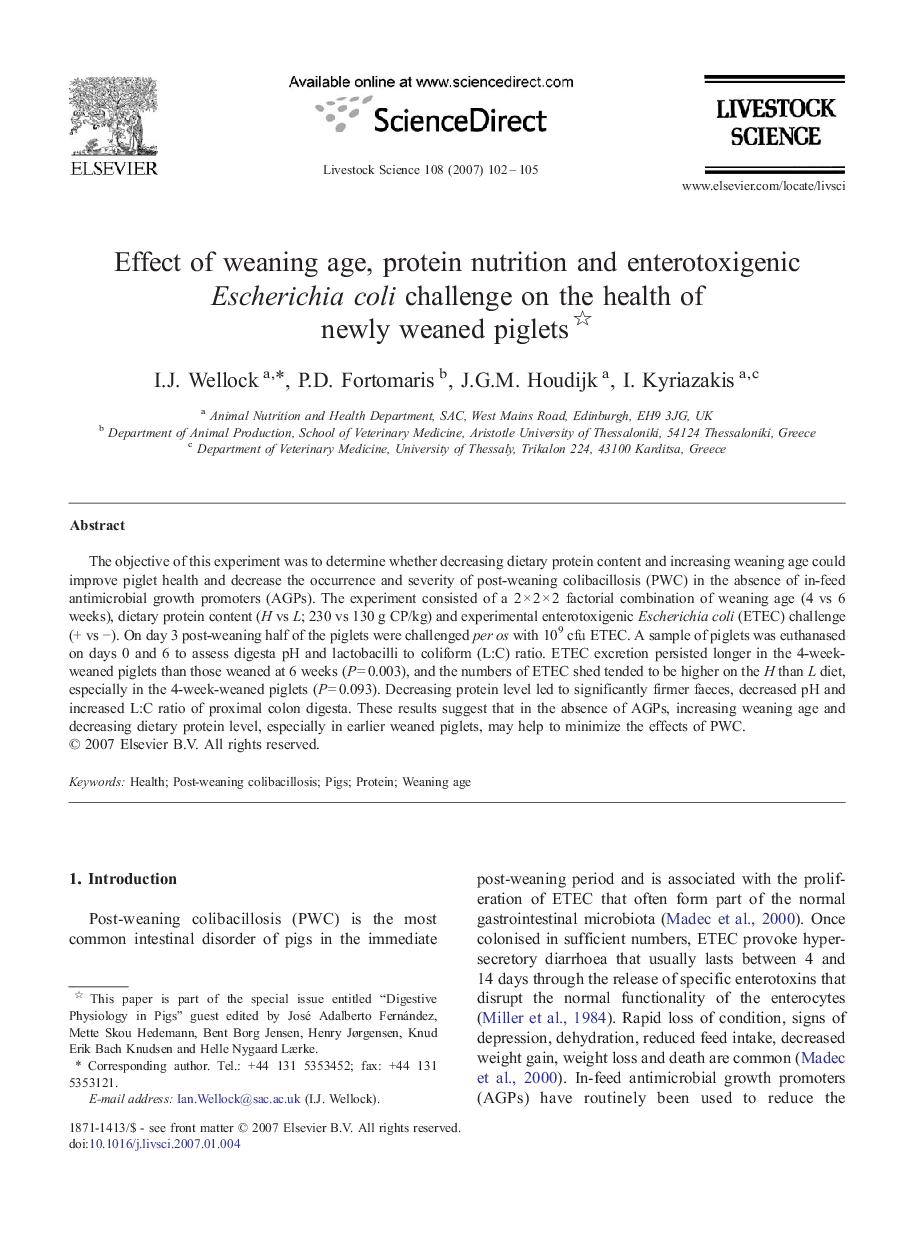| Article ID | Journal | Published Year | Pages | File Type |
|---|---|---|---|---|
| 2448762 | Livestock Science | 2007 | 4 Pages |
The objective of this experiment was to determine whether decreasing dietary protein content and increasing weaning age could improve piglet health and decrease the occurrence and severity of post-weaning colibacillosis (PWC) in the absence of in-feed antimicrobial growth promoters (AGPs). The experiment consisted of a 2 × 2 × 2 factorial combination of weaning age (4 vs 6 weeks), dietary protein content (H vs L; 230 vs 130 g CP/kg) and experimental enterotoxigenic Escherichia coli (ETEC) challenge (+ vs −). On day 3 post-weaning half of the piglets were challenged per os with 109 cfu ETEC. A sample of piglets was euthanased on days 0 and 6 to assess digesta pH and lactobacilli to coliform (L:C) ratio. ETEC excretion persisted longer in the 4-week-weaned piglets than those weaned at 6 weeks (P = 0.003), and the numbers of ETEC shed tended to be higher on the H than L diet, especially in the 4-week-weaned piglets (P = 0.093). Decreasing protein level led to significantly firmer faeces, decreased pH and increased L:C ratio of proximal colon digesta. These results suggest that in the absence of AGPs, increasing weaning age and decreasing dietary protein level, especially in earlier weaned piglets, may help to minimize the effects of PWC.
